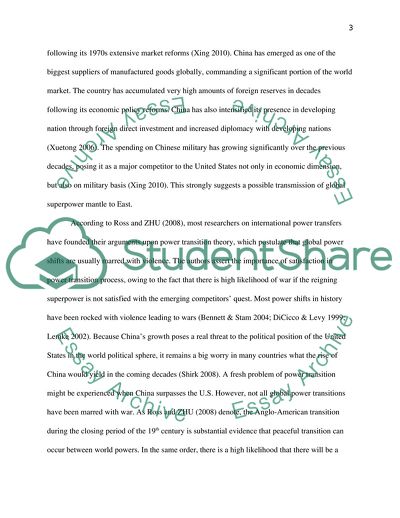Cite this document
(The Rise of China and The Current World Order Essay Example | Topics and Well Written Essays - 1500 words, n.d.)
The Rise of China and The Current World Order Essay Example | Topics and Well Written Essays - 1500 words. https://studentshare.org/politics/1822608-do-you-agree-that-the-rise-of-china-will-negatively-affect-the-current-global-world-order
The Rise of China and The Current World Order Essay Example | Topics and Well Written Essays - 1500 words. https://studentshare.org/politics/1822608-do-you-agree-that-the-rise-of-china-will-negatively-affect-the-current-global-world-order
(The Rise of China and The Current World Order Essay Example | Topics and Well Written Essays - 1500 Words)
The Rise of China and The Current World Order Essay Example | Topics and Well Written Essays - 1500 Words. https://studentshare.org/politics/1822608-do-you-agree-that-the-rise-of-china-will-negatively-affect-the-current-global-world-order.
The Rise of China and The Current World Order Essay Example | Topics and Well Written Essays - 1500 Words. https://studentshare.org/politics/1822608-do-you-agree-that-the-rise-of-china-will-negatively-affect-the-current-global-world-order.
“The Rise of China and The Current World Order Essay Example | Topics and Well Written Essays - 1500 Words”. https://studentshare.org/politics/1822608-do-you-agree-that-the-rise-of-china-will-negatively-affect-the-current-global-world-order.


